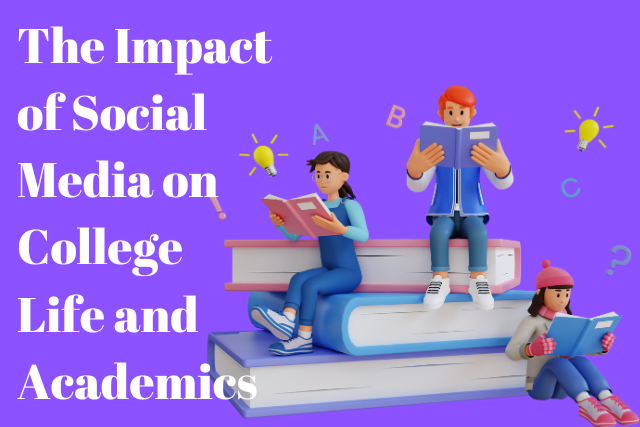In today’s digital age, it’s hard to imagine life without social media. Platforms like Facebook, Instagram, Twitter, and TikTok have become integral parts of our daily routines, especially for college students. While social media can be a great way to connect with friends and stay informed about current events, it also has a significant impact on college life and academics. In this blog post, we’ll explore the various ways in which social media influences the lives of college students, both positively and negatively.
- Positive Impact on College Life:
- Connection and Community: Social media provides a platform for college students to connect with peers, both on and off-campus. It helps in building a sense of community and fosters relationships among students.
- Information Sharing: Students can stay updated on campus events, clubs, and activities through social media channels. It’s an efficient way to disseminate information about lectures, seminars, and workshops.
- Resource Sharing: Many academic groups and organizations share study resources, notes, and research findings through social media, which can be immensely helpful for students.
- Professional Networking: Platforms like LinkedIn enable students to start building their professional network early, potentially opening doors to internships and future career opportunities.
- Negative Impact on College Life:
- Procrastination: One of the most significant downsides of social media is its potential to distract students from their studies. Scrolling through feeds for hours can eat into valuable study time.
- Negative Mental Health Effects: Constant exposure to curated, idealized versions of other students’ lives can lead to feelings of inadequacy, anxiety, and depression.
- Privacy Concerns: Sharing personal information on social media can have privacy implications, and oversharing can sometimes lead to unforeseen consequences.
- Reduced Face-to-Face Interaction: Excessive use of social media can lead to reduced face-to-face interactions, which are crucial for building meaningful relationships and communication skills.
- Striking a Balance:
Achieving a healthy balance between social media and academic life is essential for college students. Here are some tips:
- Time Management: Set aside specific times for social media use and stick to them. Use apps and tools that help you track your screen time.
- Digital Detox: Consider taking occasional breaks from social media to reduce its influence on your life.
- Use Social Media as a Tool: Utilize social media for productive purposes, such as networking, sharing educational content, and staying informed about industry trends.
- Mindful Consumption: Be mindful of the content you consume and how it makes you feel. Unfollow accounts that negatively impact your mental health.
Conclusion:
Social media undeniably plays a significant role in the lives of college students, both positively and negatively. It can enhance connections, provide valuable information, and support academic pursuits. However, it can also be a source of distraction and negatively impact mental health. Striking a balance and using social media mindfully is the key to harnessing its benefits while minimizing its drawbacks. College students should recognize its influence and take proactive steps to ensure that it enhances, rather than hinders, their academic and personal growth.


Pingback: Surviving Finals Week: Study Strategies and Stress Relief - admission.education